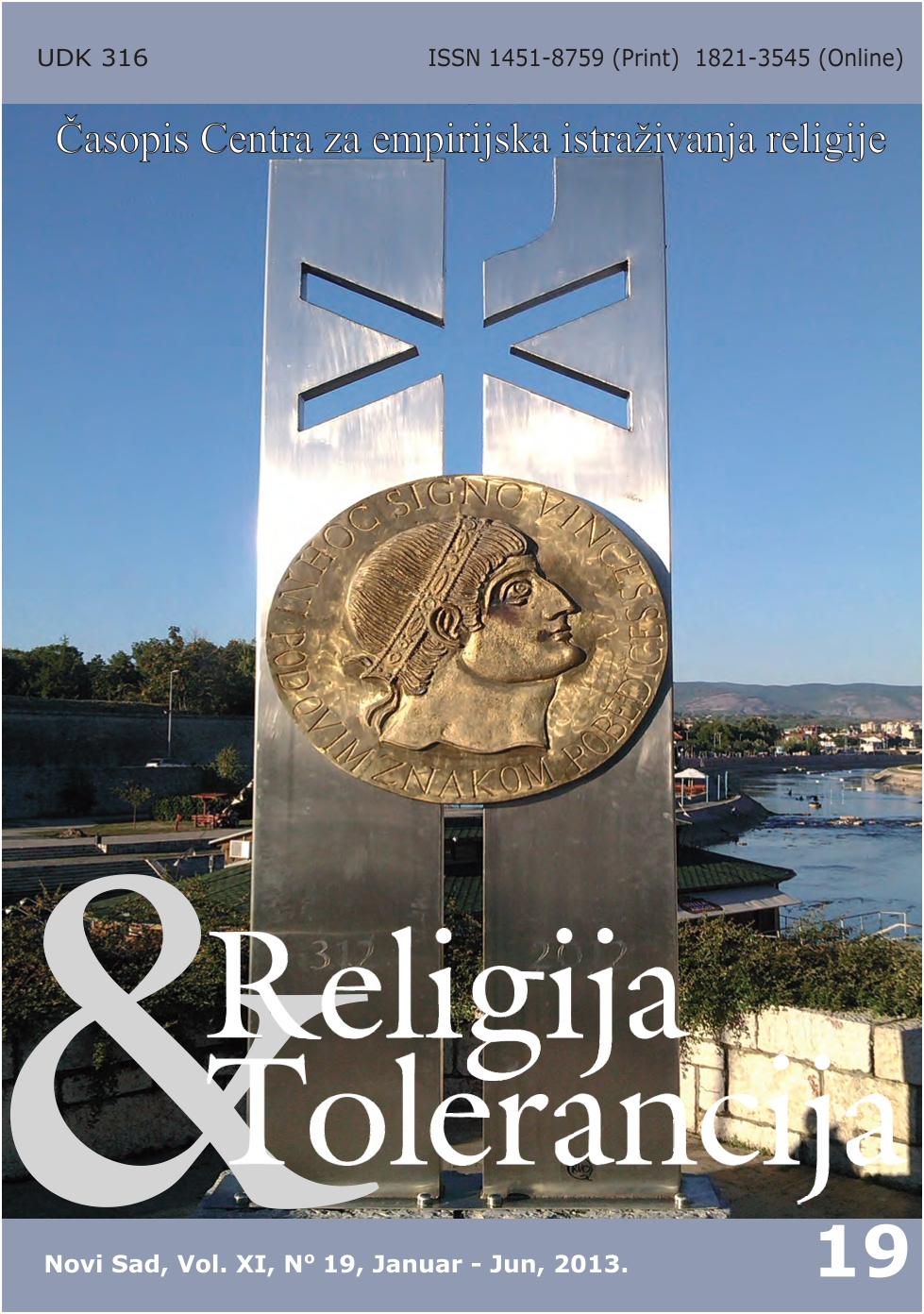MILANSKI EDIKT NA PUTU KA VERSKOJ TOLERANCIJI
THE EDICT OF MILAN ON ITS WAY TO RELIGIOUS TOLERANCE
Author(s): Danijela GrujićSubject(s): Christian Theology and Religion, Theology and Religion, History of Religion
Published by: Centar za empirijska istraživanja religije (CEIR)
Keywords: Edict of Milan; religious tolerance; philosophy; Roman world; legal legacy; political legacy
Summary/Abstract: The issue of Christian martyrdom was often posed in philosophical tradition of the first centuries. Tragedy of the fate which befell Christians in the Roman world is characterized by the most stern sanctions implemented by the State, as well as the persecutions from the mob. These actions abruptly changed once the Edict of Milan was ennacted in 313 AD. The Edict granted Christians equal rights enjoyed by the followers of other religions. Even tough it did not put an end to the history of conflict between the Roman state and Christianity, it represents a pivotal antic legacy of legal and political activity related to organization of religious life. Namely, the first notions about the purpose of religious tolerance were developed in the late Roman world. It might be said that only in conditions of religious pluralism a need to respect the freedom of other confessions is formed. Parallely with that comes institutional protection of religious freedom. Highly cultivated Roman awareness had certainly contributed greatly to that process as it has been a lasting inspiration to further development of legal and political legacy of the freedom of religion. However, instable conditions that emerged in the late Antic practice did not succeed to remain a bulwark of gained consciousness about significance of religious tolerance. They rather left it to new-age Europeans to arrange religious awareness as well as legal and political formation of institutional protection of the religion-tolerant world.
Journal: Religija i tolerancija
- Issue Year: 11/2013
- Issue No: 19
- Page Range: 39-50
- Page Count: 12
- Language: Serbian

